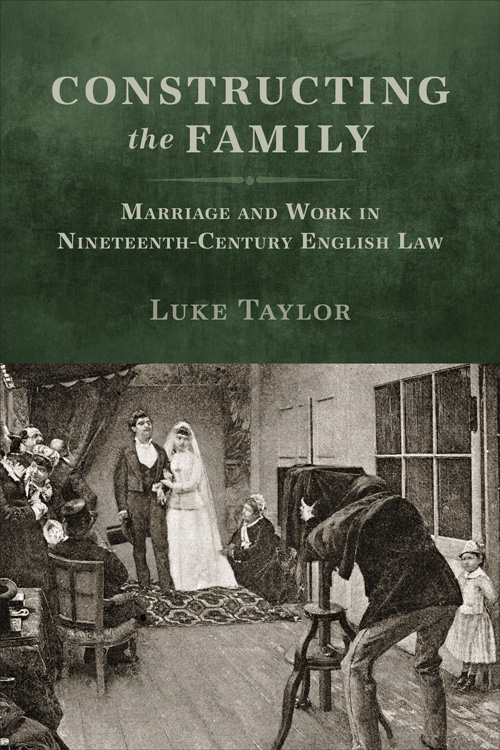Constructing the Family: Marriage and Work in Nineteenth-Century English Law

In nineteenth-century England, legal conceptions of work and family changed in fundamental ways. Notably, significant legal moves came into play that changed the legal understanding of the family.
In Constructing the Family (external link) , Professor Luke Taylor explores fundamental changes in the legal conceptions of work and family in nineteeth-century England. As part of his analysis, Professor Taylor considers the intersecting intellectual and institutional forces that contributed to the dissolution of the household, the establishment of separate spheres of work and family, and the emergence of modern legal and social ideas concerning work and family. He shows how specific legal-institutional moves contributed to the creation of the family's categorical status in the social and legal order and a distinct and exceptional body of rules – Family Law – for its governance.
About the recent publication, Professor Taylor said: "After years spent immersed in this topic, it's incredibly gratifying to see Constructing the Family in print. I'm honoured to have the endorsement of scholars I deeply admire, and whose own work has shaped the ideas in this book in fundamental ways. My hope is that the book spurs conversation about the interconnectedness of work and family life, and a reassessment of the deeply gendered separation of these domains."
Shedding light on the historical processes that contributed to the emergence of English family law, Constructing the Family illustrates how work and family became separate regulatory domains, and in so doing reveals the contingent nature of the modern legal family.